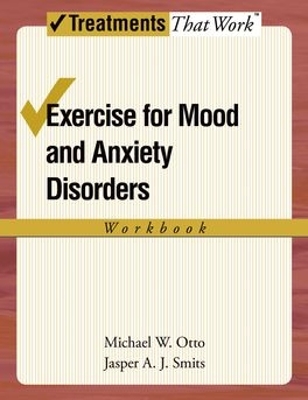Treatments That Work
1 total work
Exercise for Mood and Anxiety Disorders
by Michael W Otto and Jasper A. J. Smits
Published 9 July 2009
Research has shown that individuals who exercise regularly have less stress, less anxiety, less depression, and fewer substance use problems than those who don't. Studies have also shown that exercise can help combat the effects of depression and anxiety.
Designed to be used in conjunction with visits to your clinician, this workbook helps you plan an exercise program and provides strategies for following through with your exercise goals. The workbook is structured to help you prevent mood disturbances from blocking the very activities that can help you feel better. During the course of this program, you will be introduced to some of the situational factors that can interfere with establishing a successful exercise routine. With the help of your therapist, you will learn how to overcome these factors, as well as how to set up your environment so that exercise is successful and rewarding.
In addition to information on how to start and maintain an exercise program, this workbook comes complete with worksheets and logs for scheduling and tracking your physical activity. Strategies for managing your thinking patterns are also provided and will help you boost your motivation and break through barriers to exercise.
Designed to be used in conjunction with visits to your clinician, this workbook helps you plan an exercise program and provides strategies for following through with your exercise goals. The workbook is structured to help you prevent mood disturbances from blocking the very activities that can help you feel better. During the course of this program, you will be introduced to some of the situational factors that can interfere with establishing a successful exercise routine. With the help of your therapist, you will learn how to overcome these factors, as well as how to set up your environment so that exercise is successful and rewarding.
In addition to information on how to start and maintain an exercise program, this workbook comes complete with worksheets and logs for scheduling and tracking your physical activity. Strategies for managing your thinking patterns are also provided and will help you boost your motivation and break through barriers to exercise.
